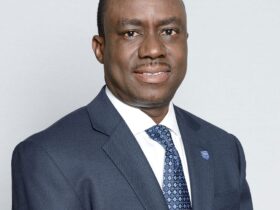FARO, a groundbreaking South African startup, has raised $6 million to make fashion more affordable and address the growing issue of textile waste across Africa. This impressive funding round was led by JP Zammitt, President of Bloomberg, with participation from top venture capital firms like Presight Capital and Garage Ventures. Individual investors included Mato Perić (MPGI), Leonard Stiegeler (Pulse), Oliver Merkel (Flink), Vikram Chopra (Cars24), Tushar Ahluwalia (Razor Group), and Daniel Funk, Managing Director of Thiel Capital.
Tackling Textile Waste Through Innovation
With the new funds, FARO aims to expand operations and tackle one of the fashion industry’s biggest sustainability challenges: textile waste. The company addresses the paradox of surplus inventory in developed markets and the environmental damage caused by secondhand clothing imports in emerging markets. By leveraging this untapped potential, FARO has positioned itself within the growing global resale market.
Rapid Growth Since Launch
FARO launched in 2024, but its journey began a year earlier with an experimental pop-up store in South Africa. The store generated $100,000 in its first month, setting the stage for future success. Initially, the company estimated it would need seven stores to reach $2 million in annual revenue. However, FARO exceeded expectations by generating $2.3 million last year with just four stores—achieving an incredible 20x growth.
Operating in urban hubs, mid-market centers, and formal retail spaces, FARO consistently outperforms traditional retail benchmarks.
Ambitious Expansion Plans
Currently, FARO operates four stores but plans to grow to 1,000 locations over the next decade. The company sources inventory from major brands like ASOS, Boohoo, G-Star, Jack & Jones, and Levi’s. About 40% of its stock comes from reconditioned returns, while 60% consists of overstock items. These products are sold at up to 70% off retail prices, appealing to budget-conscious shoppers.
FARO’s business model revolves around purchasing unsold inventory, giving these products a second life. This approach reduces waste, supports sustainability, and ensures affordable access to essential goods.
Driving Sustainability with Technology
FARO’s success is powered by advanced data analytics and inventory management systems. These tools help predict consumer demand, optimize stock levels, and create a seamless shopping experience. By combining technology with sustainable practices, FARO has set a new standard in the retail industry.
The company’s CEO, David Torr, aims to achieve fivefold growth this year. As FARO expands into other emerging markets, it plans to use localized pricing strategies tailored to regional demand and available brands.
Aligning with Africa’s Growing Tech Landscape
FARO isn’t alone in using technology to tackle inventory challenges. Nigerian startup PrognoStore offers a 3-in-1 point-of-sale system that helps small business owners streamline sales, inventory, and analytics. Similarly, Côte d’Ivoire’s Waribei provides inventory financing to help merchants grow their businesses.
These examples highlight how technology is transforming retail and improving access to goods across Africa.
Pioneering a Circular Economy
FARO’s model supports a circular economy by extending the life of products and reducing waste. It also saves costs for consumers and suppliers, aligning with global sustainability goals. The company’s innovative approach offers valuable lessons for businesses seeking to balance profitability with environmental responsibility.
As FARO scales, its impact goes beyond profits, influencing how businesses think about waste, resource efficiency, and affordability. The company is setting a powerful example for the retail industry across Africa and beyond.


















